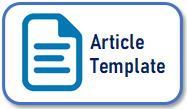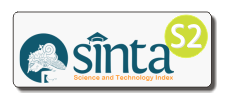Empowering Muslim Women-Owned Small and Medium-Scale Enterprises through Women Cooperative
DOI:
https://doi.org/10.14421/grieb.2024.121-05Keywords:
Muslim Women, Women Small Business, Empowerment, Entrepreneurial Knowledge, Household WelfareAbstract
This research aims to examine the influence of empowerment, business assistance, and entrepreneurial knowledge on business growth and household welfare in Small, and Medium Enterprises owned by Muslim women. The method used is partial least squares structural equation modeling with a sample of 254 Muslim women-owned SMEs who are members of the women's cooperative. The research findings indicate that empowerment and entrepreneurial knowledge play crucial roles as mechanisms for the business growth of Muslim women entrepreneurs and household welfare. Furthermore, the results also suggest that business assistance does not have a significant influence on the business growth of women Muslim entrepreneurs. Overall, the practical implications of these findings underscore the need for the development of more holistic empowerment programs that not only focus on business growth but also consider household welfare
References
Abebe, A., & Kegne, M. (2023). The role of microfinance institutions on women’s entrepreneurship development. Journal of Innovation and Entrepreneurship, 12(1), 17. https://doi.org/10.1186/s13731-023-00285-0
Aini, Q., & Oktafani, F. (2020). PENGARUH PENGETAHUAN KEWIRAUSAHAAN, MOTIVASI BERWIRAUSAHA DAN LINGKUNGAN KELUARGA TERHADAP MINAT BERWIRAUSAHA MAHASISWA FAKULTAS KOMUNIKASI DAN BISNIS TELKOM UNIVERSITY. Jurnal Ilmiah Ekonomi Dan Bisnis, 17(2), 151–159. https://doi.org/10.31849/jieb.v17i2.3845
Alonso, C., Brussevich, M., Dabla-Norris, E., Kinoshita, Y., & Kochhar, K. (2019). Reducing and Redistributing Unpaid Work. IMF Working Papers, 19(225). https://doi.org/10.5089/9781513514536.001
Bambang, Azis, A. A., Kalsum, U., Akmal, S., Alfiana, & Almahdali, F. (2023). Pemberdayaan Ekonomi Masyarakat Melalui Pelatihan Kewirausahaan dan Akses Pembiayaan. Easta Journal of Innovative Community Services, 1(03), 142–155. https://doi.org/10.58812/ejincs.v1i03.122
Benitez, J., Henseler, J., Castillo, A., & Schuberth, F. (2020). How to perform and report an impactful analysis using partial least squares: Guidelines for confirmatory and explanatory IS research. Information & Management, 57(2), 103168. https://doi.org/10.1016/j.im.2019.05.003
Bharti, N. (2021). Role of cooperatives in economic empowerment of women: a review of Indian experiences. World Journal of Entrepreneurship, Management and Sustainable Development, 17(4), 617–631. https://doi.org/https://doi.org/10.1108/WJEMSD-07-2020-0095
Etikan, I. (2016). Comparison of Convenience Sampling and Purposive Sampling. American Journal of Theoretical and Applied Statistics, 5(1), 1. https://doi.org/10.11648/j.ajtas.20160501.11
Gemina, D., & Pitaloka, A. W. (2020). KEBERHASILAN USAHA BERBASIS SIKAP KEWIRAUSAHAAN DAN PENGETAHUAN KEWIRAUSAHAAN PADA USAHA MIKRO KECIL MENENGAH MAKANAN MINUMAN KECAMATAN CIAWI KABUPATEN BOGOR. JURNAL VISIONIDA, 6(1), 20. https://doi.org/10.30997/jvs.v6i1.2722
Geoffrey, A. M., & Emenike, K. O. (2018). MICROFINANCE INSTITUTIONS’ SUPPORT AND GROWTH OF SMALL AND MEDIUM ENTERPRISES. KINERJA, 22(1), 29–64. https://doi.org/10.24002/kinerja.v22i1.1568
Gupta, N., & Mirchandani, A. (2018). Investigating entrepreneurial success factors of women-owned SMEs in UAE. Management Decision, 56(1), 219–232. https://doi.org/10.1108/MD-04-2017-0411
Habib, M. A. F. (2021). KAJIAN TEORITIS PEMBERDAYAAN MASYARAKAT DAN EKONOMI KREATIF. Journal of Islamic Tourism, Halal Food, Islamic Traveling, and Creative Economy, 1(2), 106–134. https://doi.org/10.21274/ar-rehla.v1i2.4778
Hair, J. F., Hult, G. T. M., Ringle, C. M., Sarstedt, M., Danks, N. P., & Ray, S. (2021). Partial Least Squares Structural Equation Modeling (PLS-SEM) Using R. Springer International Publishing. https://doi.org/10.1007/978-3-030-80519-7
Hair, J. F., Risher, J. J., Sarstedt, M., & Ringle, C. M. (2019). When to use and how to report the results of PLS-SEM. European Business Review, 31(1), 2–24. https://doi.org/10.1108/EBR-11-2018-0203
Hamdani, L., Subing, H. J. T., & Yusfiarto, R. (2024). Catalysing Sustainability: Exploring Factors Shaping Green Initiatives in Micro, Small, and Medium-Sized Enterprises. Journal of Environmental Assessment Policy and Management. https://doi.org/10.1142/S1464333224500042
Henseler, J., Ringle, C. M., & Sarstedt, M. (2015). A new criterion for assessing discriminant validity in variance-based structural equation modeling. Journal of the Academy of Marketing Science, 43(1), 115–135. https://doi.org/10.1007/s11747-014-0403-8
Her-Loke Koh, Sakiru Adebola Solarin, Yee-Yen Yuen, Suganthi Ramasamy, & Guan-Gan Goh. (2021). The Impact of Microfinance Services on Socio-Economic Welfare of Urban Vulnerable Households in Malaysia. International Journal of Business and Society, 22(2), 696–712. https://doi.org/10.33736/ijbs.3752.2021
Ibrahim, H. R. (2022). PEMBERDAYAAN USAHA MIKRO KECIL MENENGAH MELALUI PENDEKATAN INOVASI SOSIAL DAN COLLABORATIVE GOVERNANCE. Jurnal Ilmu Dan Budaya, 43(1), 103. https://doi.org/10.47313/jib.v43i1.1532
Isukul, A., & Tantua, B. (2021). Financial Inclusion in Developing Countries: Applying Financial Technology as a Panacea. In Economic Growth and Financial Development (pp. 1–21). Springer International Publishing. https://doi.org/10.1007/978-3-030-79003-5_1
KORPI, W. (2000). Faces of Inequality: Gender, Class, and Patterns of Inequalities in Different Types of Welfare States. Social Politics: International Studies in Gender, State & Society, 7(2), 127–191. https://doi.org/10.1093/sp/7.2.127
Korpi, W., Ferrarini, T., & Englund, S. (2013). Women’s Opportunities under Different Family Policy Constellations: Gender, Class, and Inequality Tradeoffs in Western Countries Re-examined. Social Politics: International Studies in Gender, State & Society, 20(1), 1–40. https://doi.org/10.1093/sp/jxs028
Kowalewska, H. (2023). Gendered employment patterns: Women’s labour market outcomes across 24 countries. Journal of European Social Policy, 33(2), 151–168. https://doi.org/10.1177/09589287221148336
Kuzilwa, J. A. (2005). The Role of Credit for Small Business Success. The Journal of Entrepreneurship, 14(2), 131–161. https://doi.org/10.1177/097135570501400204
Mursyidin, M., Darmansyah, D., & Yulianda, R. (2023). The Role of a Women’s Cooperative to Improve the Welfare of Women Coffee Farmers in Bener Meriah Regency, Indonesia. Journal of Madani Society, 2(3), 195–202. https://doi.org/10.56225/jmsc.v2i3.268
Nursini, N. (2020). Micro, small, and medium enterprises (MSMEs) and poverty reduction: empirical evidence from Indonesia. Development Studies Research, 7(1), 153–166. https://doi.org/10.1080/21665095.2020.1823238
Øystein Widding, L. (2005). Building entrepreneurial knowledge reservoirs. Journal of Small Business and Enterprise Development, 12(4), 595–612. https://doi.org/10.1108/14626000510628252
Pambekti, G. T., Yusfiarto, R., & Nugraha, S. S. (2022). ROSCAs THROUGH THE ISLAMIC COMMUNITY: AN ALTERNATIVE TO ENHANCING ENTREPRENEURSHIP AND WEALTH. Journal of Islamic Monetary Economics and Finance, 8, 81–106. https://doi.org/10.21098/jimf.v8i0.1371
Rakhmkad, A., Hendrawijaya, A. T., & Indrianti, D. T. (2020). Peran Koperasi Wanita Terhadap Keberdayaan Perempuan Di Koperasi Wanita “Bunda Pertiwi” Desa Kraton Yosowilangun Kabupaten Lumajang. Learning Community : Jurnal Pendidikan Luar Sekolah, 3(2), 23. https://doi.org/10.19184/jlc.v3i2.16798
Saibil, D. I., Khoirunnisa, A. N., & Yusfiarto, R. (2023). From Cash to Cashless: Understanding Users’ Switching Intentions from Cash to Mobile Payment Applications. Vision: The Journal of Business Perspective. https://doi.org/10.1177/09722629231197336
Samer, S., Majid, I., Rizal, S., Muhamad, M. R., Sarah-Halim, & Rashid, N. (2015). The Impact of Microfinance on Poverty Reduction: Empirical Evidence from Malaysian Perspective. Procedia - Social and Behavioral Sciences, 195, 721–728. https://doi.org/10.1016/j.sbspro.2015.06.343
Sarstedt, M., Ringle, C. M., & Hair, J. F. (2017). Partial Least Squares Structural Equation Modeling. In Handbook of Market Research (pp. 1–40). Springer International Publishing. https://doi.org/10.1007/978-3-319-05542-8_15-1
Simbolon, S. E. A., & Afdawaiza. (2023). Analysis of the Mediating Effect of Micro Business Growth on Productive Zakat Utilization, Information Technology, and Mustahiq’s Welfare. Global Review of Islamic Economics and Business, 11(2), 051–071. https://doi.org/10.14421/grieb.2023.112-05
Suseno, G. P., & Nataliningsih, N. (2023). The Role of Women’s Cooperatives as an Institution to Empower Women in Supporting the Achievement of the SDGs. International Journal of Ethno-Sciences and Education Research, 3(2), 45–53. https://journal.rescollacomm.com/index.php/ijeer/index
Telaumbanua, A., & Harefa, P. (2023). Pengukuran Kinerja Keuangan Koperasi Dengan Pendekatan Rasio (Studi Pada Koperasi Osseda Faolala Perempuan Nias 2019-2022). Jesya, 6(2), 2337–2350. https://doi.org/10.36778/jesya.v6i2.1270
Ummah, M. A. C. S. (2021). IMPACT OF PSYCHOLOGICAL CHARACTERISTICS ON BUSINESS PERFORMANCE OF MUSLIM WOMEN ENTREPRENEURS IN SRI LANKA. Journal of Islamic Monetary Economics and Finance, 7(4). https://doi.org/10.21098/jimf.v7i4.1380
Utama, S., Yusfiarto, R., Pertiwi, R. R., & Khoirunnisa, A. N. (2023). Intentional model of MSMEs growth: a tripod-based view and evidence from Indonesia. Journal of Asia Business Studies. https://doi.org/10.1108/JABS-08-2022-0291
Widiastuti, T., Auwalin, I., Rani, L. N., & Ubaidillah Al Mustofa, M. (2021). A mediating effect of business growth on zakat empowerment program and mustahiq’s welfare. Cogent Business & Management, 8(1). https://doi.org/10.1080/23311975.2021.1882039
Yusfiarto, R., & Pambekti, G. T. (2019). DOES INTERNET MARKETING FACTORS WITH ISLAMIC VALUE IMPROVE SMEs PERFORMANCE? Journal of Islamic Monetary Economics and Finance, 5(4), 807–828. https://doi.org/10.21098/jimf.v5i4.1101
Zhang, J., Jin, S., Li, T., & Wang, H. (2021). Gender discrimination in China: Experimental evidence from the job market for college graduates. Journal of Comparative Economics, 49(3), 819–835. https://doi.org/10.1016/j.jce.2021.01.003
Downloads
Published
Issue
Section
License

This work is licensed under a Creative Commons Attribution-ShareAlike 4.0 International License.
Global Review of Islamic Economics and Business is licensed under a
Creative Commons Attribution-ShareAlike 4.0 International License



















